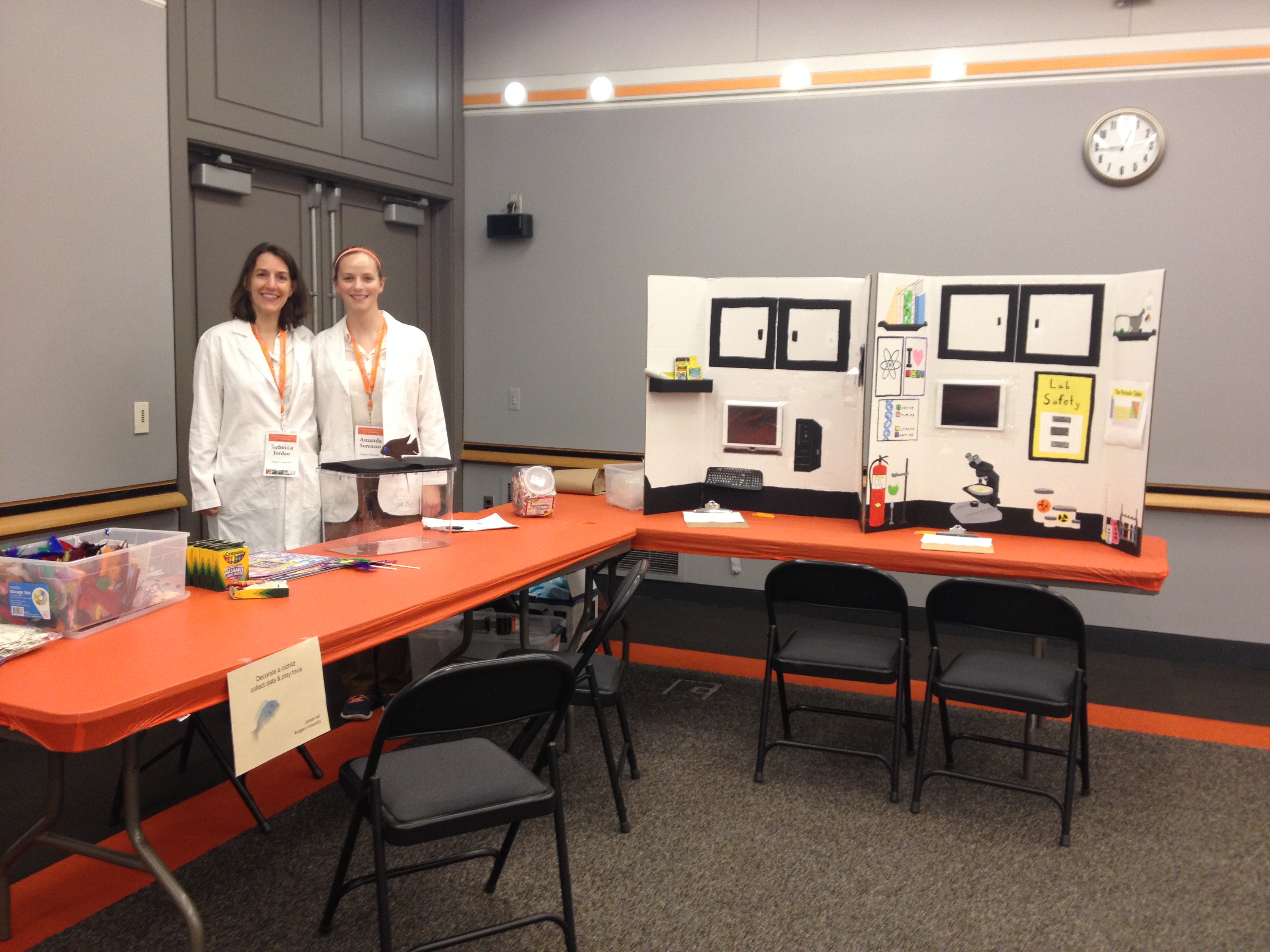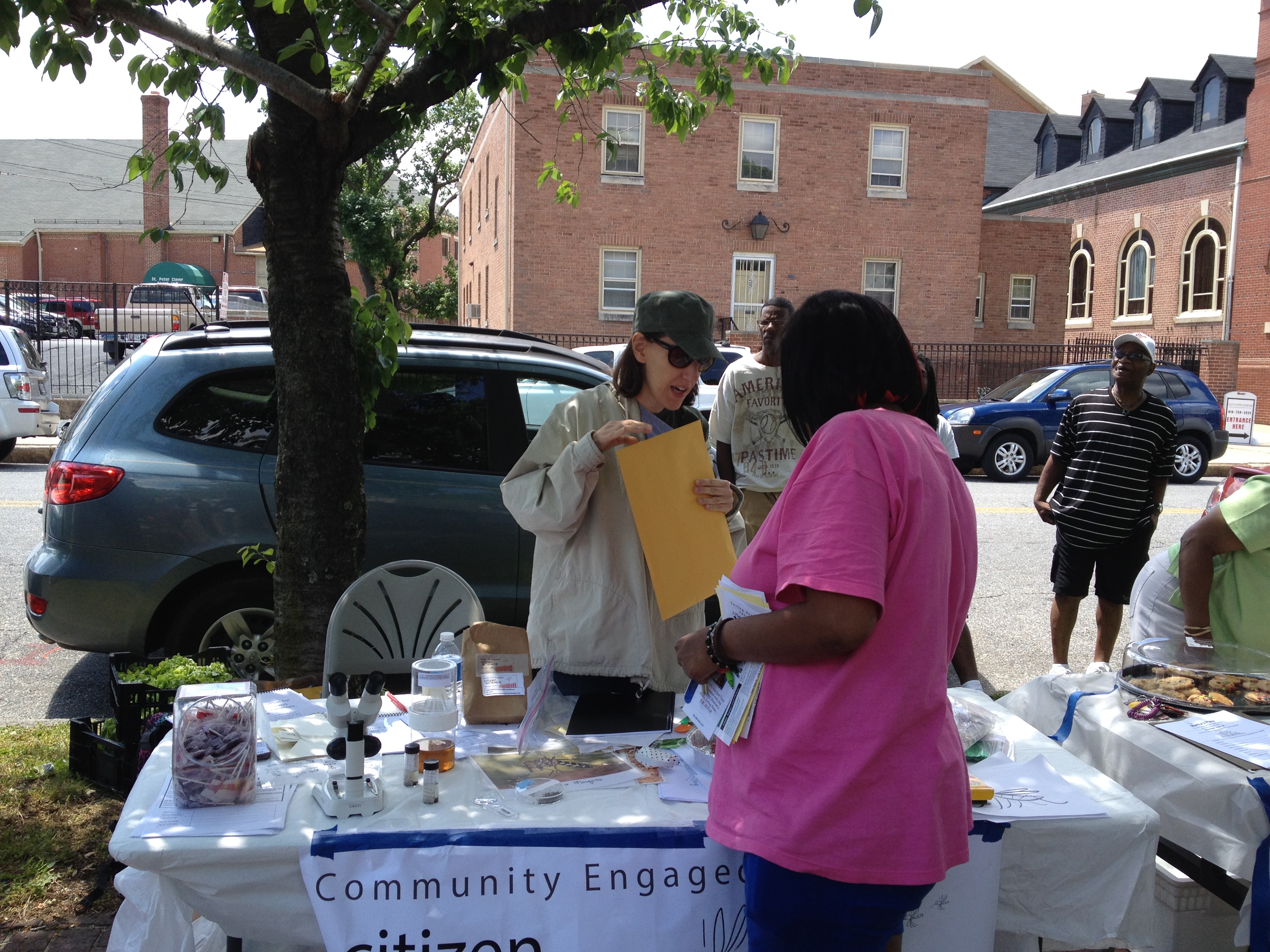3 April 2017
Is Citizen Science democratizing science? Research in the evaluation and design of citizen science programs can help determine long-term benefits
Posted by Shane Hanlon

“Take Back the Block” Citizen Scientists present their work at a local art gallery in West Baltimore, MD to local residents and scientists at a Baltimore Ecosystem Study (BES) reception.
By Amanda E. Sorensen
Citizen science, and other public participatory research programs, allows members of the public to engage authentically in the process of science, helping to answer real scientific questions. As part of these programs, often times members of the public can go beyond contributing to science, to asking and answering their own questions using scientific practices and meaningfully addressing issues within their own communities. My research focuses on what are the best-practices for scientists and practitioners engaging in these programs, particularly thinking about the implications on science knowledge, literacy, support, and personal identity for the participants of citizen science.

Rebecca Jordan (left) and Amanda Sorensen (right) at a Animal Behavior Society community outreach event at Princeton University, NJ.
Because of the potential long-term benefits for the public and increasing prevalence of citizen science in scientific research, I am passionate about this research and communicating the findings of this work to fellow scientists. As a part of my research, I have found that certain aspects of citizen science program design and rhetoric significantly influences participant trust and views of science as well as their desire to engage in future citizen science programs. While these results seem intuitive, there has been little work done so far to establish how scientists should design these programs. From my experience in researching citizen science, I have found that scientists and practitioners wishing to develop a citizen science program should engage with theory from psychology, sociology, and communication studies to improve long-term outcomes for their participants. Because many practitioners may be hesitant to dive into these disciplinary areas because it is outside of their areas of expertise, my research seeks to develop/highlight frameworks for practitioners to use to incorporate these ideas into their citizen science programs. Additionally, this work and others highlights the importance of having thought-out and intentional evaluation built into these programs. By increasing the number of citizen science programs collecting data on their efficacy, we can begin to understand the long-term impacts of citizen science and other opportunities where members of the public can authentically engage with science. As I finish up my PhD this spring, I plan to continue focusing on this area of research, particularly focusing on how we can design online citizen science programs to better serve the communities that use them.

Rebecca Jordan talking with a citizen scientists at a West Baltimore, MD Community Day event for the “Take Back the Block” Citizen Science program.
Are you interested in getting involved with citizen science but don’t know where to start? Check out the Citizen Science Association (www.citizenscience.org) for more information about citizen science projects, research, and practitioners. You can also host your own citizen science project online with easy-to-use web platforms and connect to people who might be interested in your project at www.citsci.org and www.scistarter.com. If you are interested in reading about what other researchers have found in their own citizen science projects, a new journal from the Citizen Science Association called Citizen Science: Theory and Practice is publishing new papers periodically and are freely available online.
-Amanda E. Sorensen is a PhD Candidate studying Human Dimensions of Environmental Issues in the Human Ecology Department at Rutgers University. Find her at www.amandaesorensen.com.


 The Plainspoken Scientist is the science communication blog of AGU’s Sharing Science program. With this blog, we wish to showcase creative and effective science communication via multiple mediums and modes.
The Plainspoken Scientist is the science communication blog of AGU’s Sharing Science program. With this blog, we wish to showcase creative and effective science communication via multiple mediums and modes.